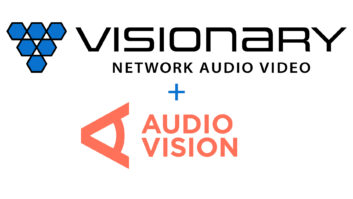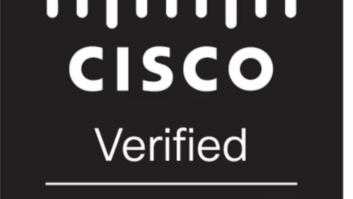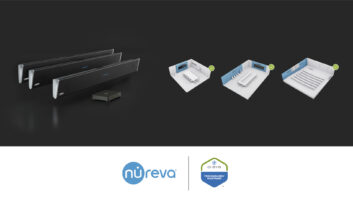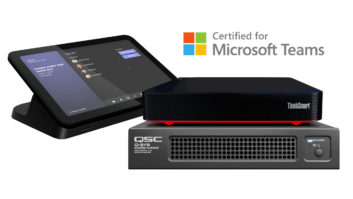
We talk to Nick Phillips, vice president of sales and marketing at Pakedge, to discuss why networking is such an important issue and why IP is the secret weapon in the AV integrators’ arsenal.
There is a great deal of talk about convergence, but what has this meant for commercial AV?
Although everyone focuses on the technology component of convergence, I feel that the people and process elements are as important. Convergence is ultimately about change and change management. Technology change is relatively easy compared to people and process changes. In order to successfully navigate this change and be relevant, we must drive new conversations, interactions and partnerships between IT and AV at all levels – from IT and AV managers, IT and AV services providers, to IT and AV systems vendors.
Take the example of specifying an AV system, such as videoconferencing, to be integrated onto the IT network. AV managers must understand basic networking in order to determine what they are buying can be supported by the IT network, as well as specify what they need from their IT counterparts in order to make the system communicate with other systems on the network. AV managers must be part of the discussions when IT budgets are being planned to ensure that their needs are met. AV installers and technicians must understand how to configure their systems so that they can interoperate on IT networks. AV services providers and systems vendors must stay current with IT trends to ensure that their offerings are compatible and relevant with the network. They must be vigilant to new business opportunities that arise in response to marketplace gaps and needs.
In order to support their AV counterparts, IT managers must understand how the AV systems will be used, its consumption of network resources, how to design and plan the network to support bandwidth intensive AV platforms, and to develop budgets that account for the need to support AV systems. IT service providers and systems vendors must understand and stay current with AV trends to ensure that their offerings can support current and emerging AV technologies.
What convergence means is that today’s commercial AV integrators operate in a new environment. The shift of AV platforms to IP standards brings new possibilities and opportunities but the ultimate winners are those that can and will change not only the technology, but its people and processes.
What has been the most significant trend or development in AV networking?
There are two trends. The first trend is the standardisation around IP. This has been the driver for many of the technology advances in the AV world. Once disparate systems are now truly integrated and interoperate over IP whereas, in the past, gateway products were needed to translate proprietary protocols. Gateway products brought with it levels of complexity and challenging barriers for the integrator. IP removes the need for translators to create a truly integrated and interoperable system. Now that IP is the common protocol, compatibility and interoperability issues are a thing of the past. That said, AV integrators do need to develop a deeper understanding of IP and networking in order to get to the next level.
The second trend, which is now starting to play out, is the Cloud. As more and more AV devices and systems become IP standardised, many are also leveraging the Cloud to increase functionality and create new business and service models. Today many AV vendors have “as a service” type offers. These offers will continue to evolve over the next few years. Tomorrow’s AV managers will act as portfolio managers overseeing a combination of in-house systems, and outsourced “as a service” platforms. To prepare for this additional role, AV managers and integrators must understand cloud technologies, cloud business models and build frameworks for evaluating AV capabilities in terms of ‘core’ (keep capability) or ‘context’ (outsource capability).
How successfully has the industry managed this paradigm shift?
It’s a tale of two cities. You have integrators set up in the last 10 years and those before the advent of IP. The IP-generation is well-skilled at managing networks from the set-up to on-going maintenance. By contrast, we see many installers who are outsourcing elements of network management to IT consultants.While these IT consultants provide a valuable service for the AV integrators, many are just programming off-the-shelf products and then resell them to integrators. As the IP network becomes more and more important, these integrators need to develop this knowledge and capability in-house. But, with good products, the right training and support and commitment, AV integrators can easily make this transition to bring this capability in-house and take control of their destiny.
How can installers best capitalise on IP networking?
As a minimum, installers and AV managers need to understand IP and networking so that they can take ownership of the overall AV portfolio, and its integration into the IT network. Second, AV managers and installers need to understand the cloud and its various business models and offerings. What offerings are out there and which ones could be integrated into the AV portfolio? Third, AV managers and installers need to think in terms of new opportunities and services that an IP network facilitates. For example, IP networks can be easily monitored and managed. The area of remote network monitoring and management is an emerging area of growth that Pakedge is developing for the AV integrator – a managed service with a recurring revenue stream.
This type of offering is a complement to the traditional “box ” business. With the right kit, power cycling, device diagnostics and general troubleshooting can all be handled via mobile device apps and the cloud. This means that installers can manage networks from the office, on site at other jobs or on holiday. Without the need for local connections, integrators can provide a better level of after sales care and dramatically increase their own time-efficiency and responsiveness. More importantly, with this type of capability, integrators can be proactive. Imagine installers receiving “push” notifications when there is an issue on a network and then remotely fixing the issue before the customer is even aware of it.
What challenges do you see in the future for people installing and managing commercial AV networks?
The network is only going to get more complex. The increasing use of mobile devices, such as smartphones and tablets, as a platform for consumption and generation of AV information is going to have a huge impact. With everyone bringing their own content creation and consumption device, what gets managed, as well as the content generated, on the AV network is going to be very different tomorrow. Adding to this, in the not so distant future, the ‘Internet of Things’ type devices will be prevalent in every residential and commercial network. The number of devices on these networks will explode and managing this networkwill certainly be the biggest challenge in the coming years. Equally important, these devices create data and new traffic patterns on the network and we’ll see an influx of new technologies that are designed solely to manage this data and traffic.
Commercial networks now are still integrating and dealing with the impact of IP-enabled AV systems, but mobile end user devices and the Internet of Things will add another layer of complexity and management. Savvy AV integrators who can manage these new types of devices and content, and analyse the mounds of data created to create actionable insights, will be the best position to profit from these challenges. Those integrators who have not made the necessary investments in understanding and developing the in-house capability of working with and managing IP technologies are going to be rendered irrelevant. That’s why IP networking, and getting up to speed with the technology, is so important as managing networks, the data and content generated, and keeping them functioning smoothly will be the most significant – dare I say, dominant – aspect of our industry.







